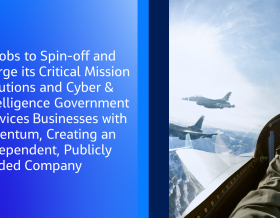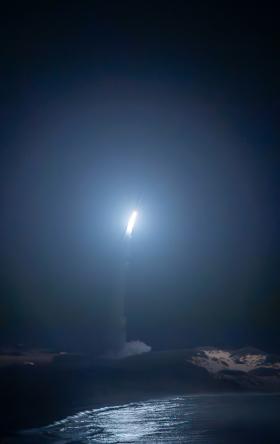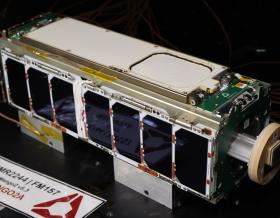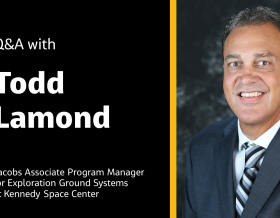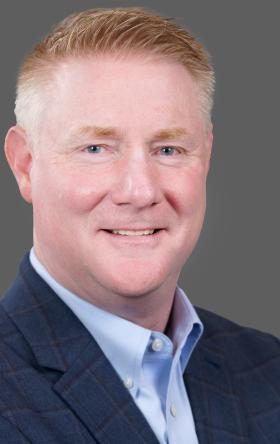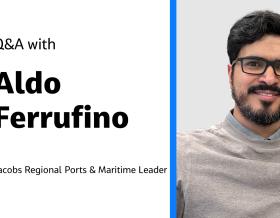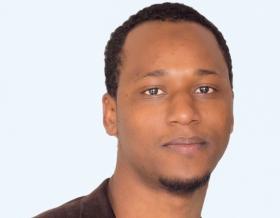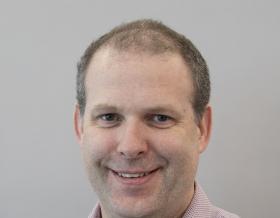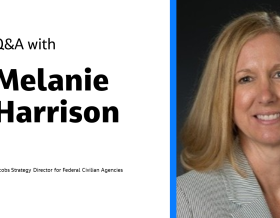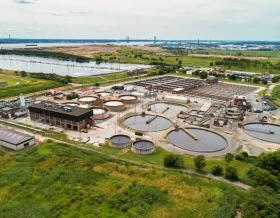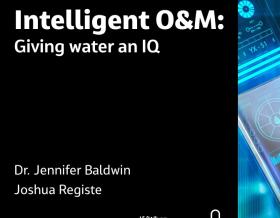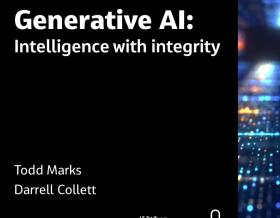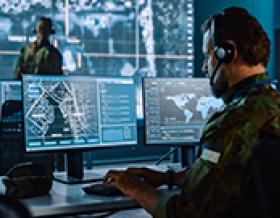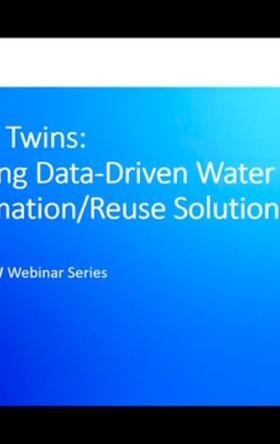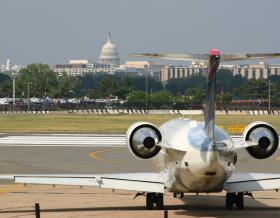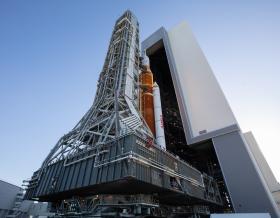
From launch to flight to splashdown, we redefine what’s possible at Jacobs — and our new generation space leaders are working on some pretty cool things, like helping prepare for Artemis II, working on satelittles, sensors and launches for the Missile Defense Agency, technology development for our Space Force client, astronaut transportation to and from the International Space Station and more!
Get to know Nicole Tennant, Shelby Rode, Alejandro Martin-Burgos, Dr. Randall Seymour, Rick Kernan, Spencer Mitchell, Holly Wells, Nicholas Thompson, Samir Yakubi, and Elizabeth Hall, and learn what it’s like to work in the space industry.
Nicole Tennant, Operations Manager of the Langley Unitary Plan Wind Tunnel
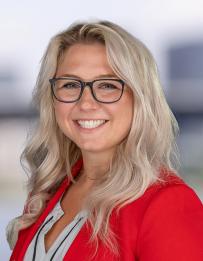
Can you tell us about your role and what you are most passionate about?
Leading the team behind groundbreaking research in hypersonics and supersonics – that's my passion as the Operations Manager of the Langley Unitary Plan Wind Tunnel at the National Aeronautics and Space Administration (NASA)’s Langley Research Center. I oversee the day-to-day operations and manage the talented staff who make cutting-edge wind tunnel testing possible for our internal NASA and external commercial customers.
What inspired you to pursue a career in space?
I didn’t initially pursue a career in space; I am a mechanical engineer by trade. Leveraging my mechanical engineering background, I transitioned from maintenance and reliability engineering at NASA to the aerospace side of operations. This shift allowed me to pursue exciting opportunities and apply my skills to new and challenging projects.
Tell us what you’re working on these days.
I am currently working to prepare the wind tunnel for upcoming critical tests to support programs such as the NASA Space Launch System and the NASA Hypersonic Test Project.
Why do you believe space exploration or knowledge of space is important?
Space exploration expands our knowledge of the universe, fuels technological innovation, and inspires future generations, offering benefits far beyond our current capabilities.
What is one thing you hope to experience or accomplish personally in your career regarding space?
Mentoring aspiring engineers and technicians is a passion of mine. Seeing them grow and exceed my achievements would be the ultimate reward when I retire.
People would be surprised to know I…
started my journey into management at 24 years old. My management saw potential in me and gave me the opportunity to manage a wind tunnel at a young age.
What advice do you have for recent graduates pursuing space careers?
While NASA and other agencies offer exciting opportunities as a government employee, don't limit your search; likely, corporate companies are performing the same work! Many companies work on aerospace projects, offering diverse fields to explore. Remember, the aerospace industry is vast, so keep an open mind and explore your options.
What do you enjoy most about being part of #OurJacobs?
I enjoy the opportunities associated with being part of a large organization, coupled with the profound sense of purpose derived from contributing to projects with global impact like those undertaken by NASA and their external clients.
Shelby Rode, Lead Test Director, Energy & Space Simulation Group
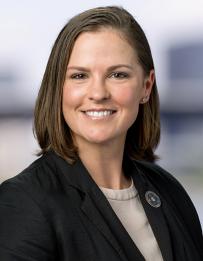
Can you tell us about your role and what you are most passionate about?
I am a Lead Test Director in the Crew and Thermal Systems division – I love leading a team of diverse individuals who have their hand on every piece of hardware (and sometimes human) that flies into space.
What inspired you to pursue a career in space?
While working overnight operations on the USS George H.W. Bush floating in the middle of the Atlantic Ocean, I looked up to the stars. The view is stunningly sparkling, with the Milky Way visible in the night sky. I always categorize this moment as a turning point in my career – I wanted to be a part of exploring what was up there.
Tell us what you’re working on these days.
Vehicle testing for various landing environments and human-in-the-loop testing for the next-generation space suits.
Why do you believe space exploration or knowledge of space is important?
I think space exploration is critical in understanding what is exactly ‘out there,’ but it also leads to critical advancement in technology here on Earth.
What is one thing you hope to experience or accomplish personally in your career regarding space?
I hope I get to train one of the Artemis astronauts and watch them step onto the moon.
People would be surprised to know I…
coach youth soccer at the Olympic level for the South Texas Olympic Development Program.
What advice do you have for recent graduates pursuing space careers?
Don’t be afraid to put yourself out there and ask questions! Questions lead to testing, and testing leads to answers.
What do you enjoy most about being part of #OurJacobs?
In my time with Jacobs, the company has consistently proven that they value their employee's thoughts and opinions to further the efficiency and productivity within the team environment.
Alejandro Martin-Burgos, Systems Engineer
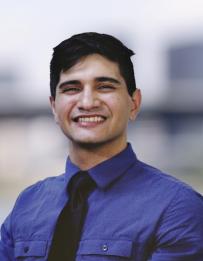
Can you tell us about your role and what you are most passionate about?
As a system engineer on Integrated Tactical Warning/Attack Assessment (ITW/AA) and Space Support Contract II (NISSC II), I navigate the ever-changing global threat landscape. When a need arises, I proactively identify potential adjustments throughout our nation’s ground-processing system, ensuring swift and effective implementation of solutions. Keeping up with our extensive system and managing the change propagation is difficult. However, I’m motivated by the people using our contract-managed system and the products we create. These dedicated warfighters operate tirelessly at their consoles, defending our nation around the clock. I’m driven to deliver the best product to streamline their work and make their lives easier.
What inspired you to pursue a career in space?
Studying under great minds and great people during my educational career, such as Dr. Theophanes Strouboulis, Dr. Gregory Chamitoff, and Dr. Daniele Mortari, helped me realize that I am capable of much more than what I gave myself credit for. Some have told me it's luck; others have said it’s hard work. Whatever you want to label it, my career began at NASA’s Johnson Space Center as a Network Operations Controller for the Ground Control position at the International Space Station Mission Control Center.
Tell us what you’re working on these days.
I’m working on integrating existing data produced by the sensor.
Why do you believe space exploration or knowledge of space is important?
As technology and capability advance, we continuously explore innovative ways to operate in the “new frontier.” Much science, math and money goes into space capability development and deployment. Parts of the human experience are “aspiration” and “learning.” We, as humans, innately love challenges and love success even more. The success is time-dependent, but it’s a goal we are working toward. From delving into the Mariana Trench to exploring other astral bodies, space presents an entirely new environment we are working toward understanding. As we continue to explore space, new technologies will emerge and ultimately help humanity.
What is one thing you hope to experience or accomplish personally in your career regarding space?
I hope we leave a lasting impact and witness the seeds we sow today have a lasting effect on the future of the space industry.
People would be surprised to know I…
met my wife in a cave in Tennessee.
What advice do you have for recent graduates pursuing space careers?
Play the cards you’re dealt, and don’t lose hope. Life varies for everyone; some encounter smooth paths while others face rugged terrain. However, the wealth and knowledge of available resources offer tools anyone can use to make their way forward. Getting into the space industry, especially the Department of Defense (DoD), can be confusingly difficult at times, but it’s far from impossible. Also, ensure you’re at a DoD 8570 IAT Level II since it’s a solid starting point for a space career. The IAT level two certification, or the DoD 8570, is a network environment information assurance certification called "Information Assurance Technical." It's one of the three levels of IAT certifications required for certain defense positions.
What do you enjoy most about being part of #OurJacobs?
The Jacobs leadership on the Integrated Research and Development for Enterprise Solutions (IRES) and NISSC II has really changed my perception of big global companies. Leadership has bent over backward to make sure the employees are looked after.
Dr. Randall Seymour, Network Architect/Network Lead for the Missile Defense Space Enterprise Architecture Networks
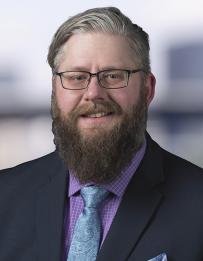
Can you tell us about your role and what you are most passionate about?
I’m the Network Architect and lead for the Missile Defense Space Enterprise Architecture organization. I’m passionate about developing and deploying cloud-attainable platforms and software-defined architectures.
What inspired you to pursue a career in space?
I originally went to school for aerospace engineering because I grew up in Houston, visited NASA's Johnson Space Center regularly, and wanted to pursue a rocket science career. The Air Force made me an information technology (IT) guy, and I went full circle by taking an IT and network role in an aerospace-based organization.
Tell us what you're working on these days.
I’m presently supporting the (successful) launch of the HBTSS (Hypersonic and Ballistic Tracking Space Sensor) satellites as the first major Missile Defense Agency (MDA) launch of this kind in over a decade and working toward onboarding new tenants to a platform that results in delivering environments quickly, more efficiently, and with more capability.
Why do you believe space exploration or knowledge of space is important?
The developments of aeronautical and aerospace research toward space travel regularly improve our quality of life on Earth. Environmental monitoring, severe weather and natural disaster warnings, global communications, vertical farming, aeroponic techniques, carbon nanotubes, and silicon wafers for next-generation chipsets are direct results of space research and exploration.
What is one thing you hope to experience or accomplish personally in your career regarding space?
I hope to grow my specific network, cloud and security expertise for the greater missions of space defense, better protecting the United States and its allies, and improving the quality of life globally.
People would be surprised to know that….
before pursuing my education in aerospace engineering, U.S. Marine Corps Avionics, U.S. Air Force Theater Deployable Communications, and doctorate in computer science, I taught public speaking and leadership to youth groups across the U.S.
What advice do you have for recent graduates pursuing space careers?
Find an area of focus that interests you and then branch out. Compare available positions and areas of interest and pursue opportunities with the chance to get a clearance, if you are not already a clearance holder, to broaden your opportunities.
What do you enjoy most about being part of #OurJacobs?
I’ve been given several opportunities to collaborate across contracts, programs, and contracts in support of multiple space vehicles, space programs, and even agencies, broadening my experience and allowing my contributions to benefit a multitude of efforts under the larger Jacobs’ umbrella.
Rick Kernan, DevSecOps Project Engineer and Team Lead
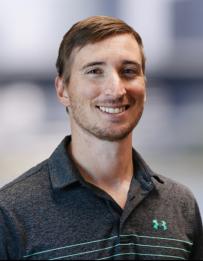
Can you tell us about your role and what you are most passionate about?
I am a Development, Security, and Operations (DevSecOps) Project Engineer and a team lead for one of our Service Delivery Teams on the NISSC II Program. I manage all aspects of the team’s projects, including the systems engineering life cycle, budget and schedule. I’m most passionate about building high-performing teams and excited to come to work every day.
What inspired you to pursue a career in space?
When leaving the military, I wanted to align myself with a company and industry that shared similar values to those I grew accustomed to. The program I work on serves a no-fail mission and is one I’m proud to support.
Tell us what you’re working on these days.
I manage multiple major technology enablement projects for our Space Force customers. I provide capabilities to our software development environment and plan for future efforts that enhance our operational environments.
Why do you believe space exploration or knowledge of space is important?
I believe space exploration and knowledge of space are important because they provide complex technological problems to solve. The benefits of solving these problems include cooperation between nations, inspiration to aspiring engineers and technologists worldwide, and the generation of scientific knowledge from which society benefits.
What is one thing you hope to experience or accomplish personally in your career regarding space?
I hope to provide meaningful mentorship to junior engineers and support their career advancement. I want to continue increasing the reach of my influence across this program and, eventually, others.
People would be surprised to know I…
am a fly-fishing enthusiast. My favorite time to be on the water in Colorado is in the winter when the mountains are covered in snow.
What advice do you have for recent graduates pursuing space careers?
Accept every opportunity to learn. You increase your effectiveness and impact by learning all engineering functions. Do not be afraid to insert yourself into uncomfortable situations; staying in your “comfort zone” will not lead to learning or satisfaction.
What do you enjoy most about being part of #OurJacobs?
I enjoy the complex problems my team solves and the people I get to solve them with. The people I work with are why I come to work every day.
Spencer Mitchell, Propulsion Systems Engineer
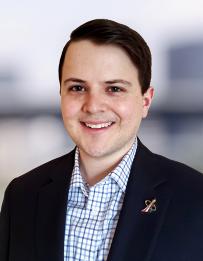
Can you tell us about your role and what you are most passionate about?
I’m on the Launch Vehicle Main Propulsion Systems (MPS) team at NASA’s Marshall Space Flight Center, supporting NASA’s Commercial Crew Program (CCP). As a member of this team, I work with NASA’s commercial providers to ensure that they meet the agency’s MPS requirements for safety and performance related to the transportation of astronauts to the International Space Station (ISS).
I’m passionate about human-rated launch vehicle operations and making sure that the astronauts make it to space safely. I support CCP launches on console, and my favorite part of my job is cheering with the rest of the Launch Vehicle team as the spacecraft successfully separates from the rocket and continues to the ISS.
What inspired you to pursue a career in space?
It’s simple: rockets are cool!
Tell us what you’re working on these days.
Although my team works with both of NASA’s commercial launch providers, SpaceX and Boeing, my focus is on SpaceX and the Falcon 9, so I’m working on certification of the Crew-9 launch vehicle for its flight in the fall. I’m also working with NASA’s SpaceX Launch Vehicle Lead Engineer to improve review processes and risk management for future missions.
Why do you believe space exploration or knowledge of space is important?
I believe it’s in our nature to explore and know all we can about the universe we find ourselves in. As an added benefit, many new technologies have been developed and continue to be developed due to space exploration.
What is one thing you hope to experience or accomplish personally in your career regarding space?
I want to become a propulsion Subject-Matter Expert (SME). Propulsion systems have always been my area of interest, and I would like to become as knowledgeable as possible.
People would be surprised to know I…
have a certification in Japanese proficiency and am working toward complete fluency. I am currently N5 certified, the lowest level, but I will attempt N3 certification in the fall.
What advice do you have for recent graduates pursuing space careers?
Don’t worry too much if you don’t immediately get the job you want. Just get your foot in the door and learn everything from the position; even if it is not what you want to do, you will get valuable experience.
What do you enjoy most about being part of #OurJacobs?
I think Jacobs really does care about people and our careers. I’ve received much support from every level of the company I’ve interacted with to help me reach my career goals.
Holly Wells, Cryogenic Systems Engineer
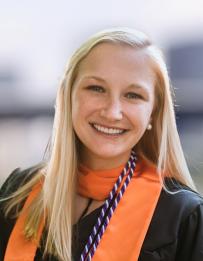
Can you tell us about your role and what you are most passionate about?
I work as a Liquid Oxygen (LO2) engineer for NASA’s Artemis Program. Our team is responsible for transferring LO2 to and from the storage facility at Launch Pad 39B and the Space Launch System (SLS) at NASA’s Kennedy Space Center. We’re also responsible for maintaining, repairing and testing the LO2 system.
What inspired you to pursue a career in space?
Growing up in Tampa, Florida, I was able to stand in my driveway and watch the space shuttle soar through the sky after launching from Kennedy Space Center. Although I could only see the light from the exhaust, I became intrigued with the space industry and all the components that make space travel possible. In addition, both of my parents are engineers, so I had an early exposure and interest in building, technology and design.
Tell us what you’re working on these days.
Our team performs multiple tests and maintenance procedures to ensure the system hardware is operating nominally and will be ready for the Artemis II launch. This also includes participating in Launch Team training simulations, in which the entire launch team conducts a simulated cryogenic loading of the SLS rocket. Practicing the procedures used to fuel the rocket will prepare the team for launch day.
Why do you believe space exploration or knowledge of space is important?
I believe it is important to continually gain a better understanding of our universe and conduct experiments in space that can help our everyday lives. These experiments and discoveries will continue to help us advance technology, medicine and sustainability. Who knows what we might find on another planet that could help us on Earth?
What is one thing you hope to experience or accomplish personally in your career regarding space?
I’m ecstatic to be a part of the launch team that will help put humans on the moon for the first time since 1972!
People would be surprised to know I…
grew up sailing and sailed competitively in middle and high school.
What advice do you have for recent graduates pursuing space careers?
Always be resilient and adaptable! Changing from being a full-time student to having a full-time job can be drastic and takes time to get used to. Also, find a job you enjoy doing each day. There are many different career paths and opportunities in the space industry!
What do you enjoy most about being part of #OurJacobs?
Jacobs has allowed me to learn from some of the most experienced space industry members. Multiple mentors of mine worked through the Space Shuttle program and are always willing to share their knowledge. After three years as an LO2 engineer, I still learn something new weekly!
Nicholas Thompson, Integration Specialist
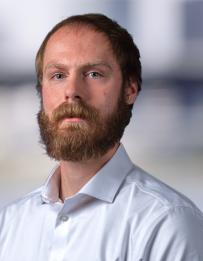
Can you tell us about your role and what you are most passionate about?
I currently support the MDA as an integration specialist for Jacobs. My focus is primarily on successfully executing various software together in the environment. I’m most passionate about automating redundant tasks. In integration, various verifications must be completed and verified when new software versions are rolled out. During my undergraduate degree in mechanical engineering, I found it more straightforward to write code, automate many repeated steps, and solve the remaining problems from those results.
What inspired you to pursue a career in space?
My family has always been involved in DoD in one capacity or another. After I heard about the current project, it was an excellent opportunity to be exposed to the space environment.
Tell us what you're working on these days.
My current projects involve root cause analysis when software doesn't work together and keeping track of changes made to identified systems. The Integration and System Administration team has been working closely to find other ways to automate processes to reduce the time needed to identify issues.
Why do you believe space exploration or knowledge of space is important?
More information can always be obtained from space. Studies on materials, physics and power can all be performed in the unique space environment, which will test these new implementations' reliability.
What is one thing you hope to experience or accomplish personally in your career regarding space?
I hope to support the current space sensor project to a successful conclusion.
People would be surprised to know I …
live on 80 acres in the opposite direction than most people who work at my office.
What advice do you have for recent graduates pursuing space careers?
Don't be afraid to ask questions or ask for help. Rarely will one person have all the answers, especially when working in the space domain.
What do you enjoy most about being part of #OurJacobs?
The people I work with and management. I never feel I have to deal with an issue alone, as everyone has a piece of the solution. Many of our solutions developed have been mainly from team discussion.
Samir Yakubi, Space System DevOps / Senior System Test Engineer
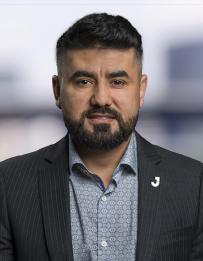
Can you tell us about your role and what you are most passionate about?
As a Space System DevOps professional, I'm driven by the noble mission behind our work and the intricate challenges space systems pose. Each day, I'm inspired to learn and grow, contributing to a cause that fosters better peace for our nation and beyond.
What inspired you to pursue a career in space?
My journey into the space industry stemmed from a lifelong passion for technology and a profound fascination with the cosmos. I've always sought to be part of something extraordinary, to tackle complex issues alongside a team dedicated to innovation and exploration.
Tell us what you're working on these days.
Presently, I'm engaged in supporting the Enterprise Space Ground system for MDA’s Space Sensor, where I'm deeply involved in ensuring the seamless functioning of critical space infrastructure.
Why do you believe space exploration or knowledge of space is important?
I firmly believe that space exploration holds the key to unlocking countless mysteries and advancing humanity toward a brighter future. By leveraging technology, we can address pressing global challenges and pave the way for progress and prosperity.
What is one thing you hope to experience or accomplish personally in your career regarding space?
In my career, I aspire to continue working within the space industry, contributing to groundbreaking projects that push the boundaries of what's possible. Ultimately, I dream of experiencing space firsthand and perhaps even venturing beyond our planet's atmosphere.
People would be surprised to know that…
before my career in IT and space, I served as a U.S. Army Special Operations Combat interpreter and culture advisor, highlighting my diverse background and adaptability.
What advice do you have for recent graduates pursuing space careers?
To recent graduates embarking on a journey in space careers, I urge you to follow your passion relentlessly. Seek opportunities that resonate with you deeply and align with your long-term vision. Genuine interest and dedication pave the path to a fulfilling and impactful career in space exploration.
What do you enjoy most about being part of #OurJacobs?
Being part of #OurJacobs is an unparalleled experience. The vibrant culture, coupled with the brilliance and supportiveness of my colleagues, fosters an environment where I feel genuinely valued and motivated. Every day is a new adventure, driven by the shared goal of pushing the boundaries of space exploration and making meaningful contributions to the world.
Elizabeth Hall, Linux System Administrator
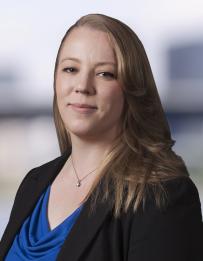
Can you tell us about your role and what you are most passionate about?
I work as a Linux System Administrator for the next generation of information technology architecture that leverages cloud computing technology to support the next generation of space systems. In this role, I ensure the cloud infrastructure works as intended and build out new requirements as projects are approved. I’m passionate about learning and improving systems and software in our environment to produce a better product for our customers.
What inspired you to pursue a career in space?
I've always been fascinated with space. From being a kid looking up at the stars to watching movies like Apollo 13 and October Sky, watching SpaceX launch rockets on YouTube, and viewing the images produced by the Hubble Telescope, space has always been a constant interest in my life.
Tell us what you're working on these days.
I’m currently working on modernizing our organization's cloud infrastructure as systems and technologies become obsolete and new ones must take their place.
Why do you believe space exploration or knowledge of space is important?
I believe space is the next step in learning more about our universe. There are so many exciting things to see and learn out there that will only become clearer as new technologies emerge.
What is one thing you hope to experience or accomplish personally in your career regarding space?
I would love to experience a space launch in person!
People would be surprised to know I …
play ice hockey.
What advice do you have for recent graduates pursuing space careers?
First, find a job you are interested in and can be passionate about. Once you are on the job, be humble and curious. Allow those around you to teach you things, and try to surround yourself with others looking to improve themselves and their projects. At the same time, keep looking for ways to grow and improve yourself and your projects. This can be through reading articles, books and magazines. You could also watch videos on new technologies and best practices or continue your education.
What do you enjoy most about being part of #OurJacobs?
The people. Jacobs has brought together a great group of individuals who want to help each other out and work to solve problems.
Join #OurJacobs team
What drives you drives us as we work to build a better world – together. At Jacobs, every day is an opportunity to make the world better, more connected, more sustainable. We’re always looking for dynamic and engaged people to join our team. Bring your passion, your ingenuity and your vision.

